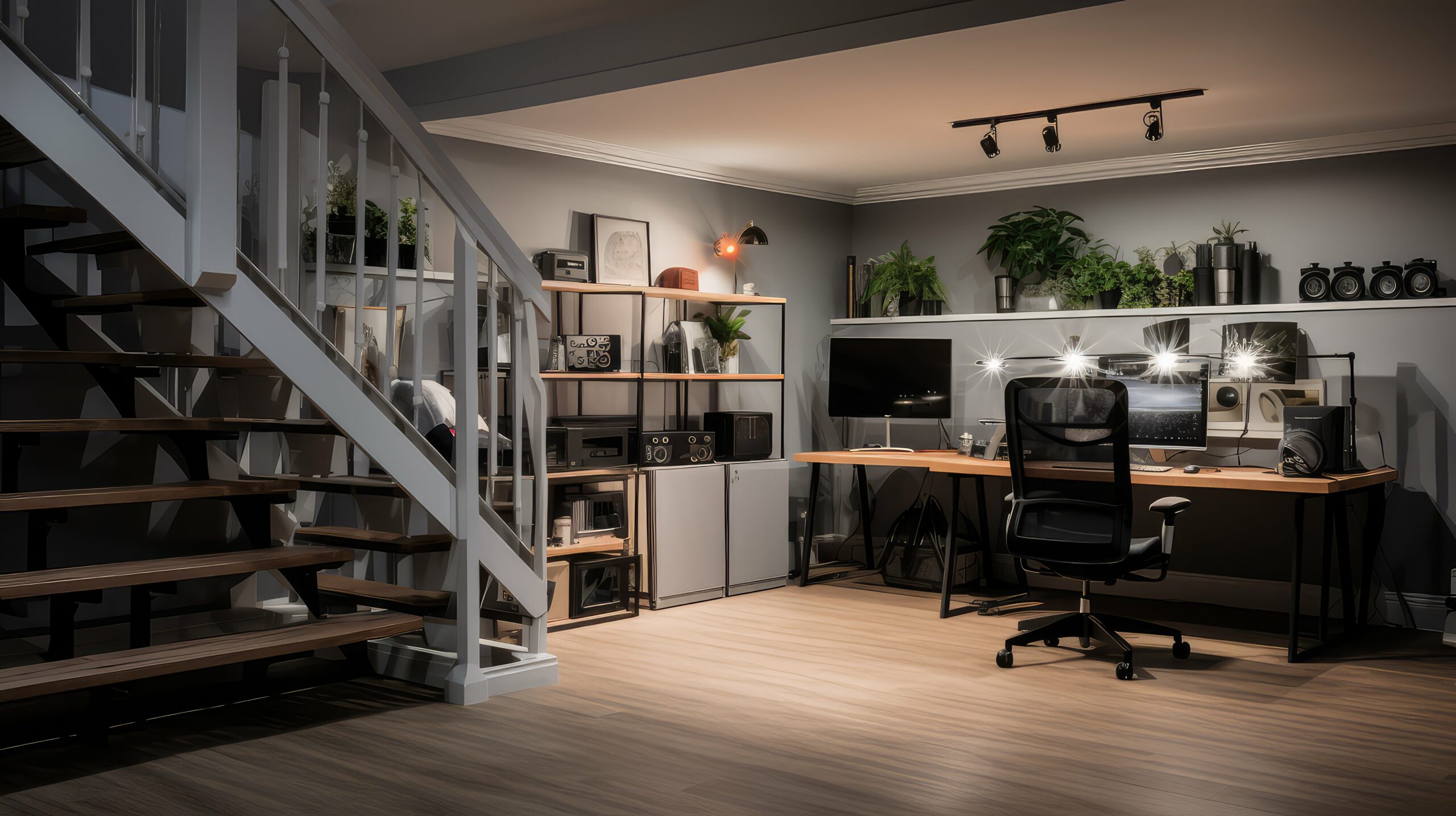
Basement Office Bliss: Creating a Productive Home Workspace
With the rise of remote work, creating a home office that is functional and inspiring has become more important than ever. While some may carve out space in their living room or bedroom, there’s an often-overlooked area that holds incredible potential: the basement. A basement office offers a unique opportunity to transform unused square footage into a quiet and productive sanctuary. If you’re considering this route, keep reading to discover tips, tricks, and insights on achieving basement office bliss.
Benefits of a Basement Office
Privacy and Quiet
One of the biggest perks of a basement office is the level of privacy it offers. Tucked away from the bustling areas of your home, a basement naturally buffers noise. This makes it the perfect location for focused work or virtual meetings without interruptions.
Imagine closing the door to your basement and stepping into a calm, professional workspace—no barking dogs, no clattering dishes, and no distractions.
Maximizing Unused Space
Basements are often underutilized, serving as nothing more than a storage space for old boxes and seasonal decorations. Why not put that square footage to better use? With a well-planned basement renovation, you can reclaim this area as a functional and beautiful office.
Customizable Environment
A basement office is a blank canvas. You’re not bound by existing layouts or limitations, so you can design the space to meet your needs. From furniture placement to lighting design, you have the freedom to create an environment that maximizes your productivity and creativity.
Key Considerations Before Starting
Planning is essential for a successful basement renovation. Before diving in, take these critical factors into account:
Lighting
Basements are notorious for being dark, but that doesn’t mean your office has to be. Start by assessing natural light sources, such as windows or walk-out doors. Enhance brightness by adding recessed lighting, desk lamps, or LED strips. If natural light is limited, opt for light-colored walls and reflective surfaces to make the space feel more open.
Ventilation and Temperature Control
Because basements are below ground level, they often experience temperature fluctuations and limited airflow. Work with a contractor for basement remodeling to install proper ventilation, heating, and cooling systems to ensure your workspace remains comfortable year-round.
Soundproofing
To maintain focus, it’s important to soundproof your basement office. This can be achieved by adding insulation, acoustic panels, or thick rugs that absorb noise. Not only will this prevent disturbances from upstairs activity, but it will also create a professional environment for virtual calls.
Permits and Renovation Needs
Before beginning your basement finishing project, check with local authorities to see if you need permits. Many municipalities have specific codes for electrical work, plumbing, and egress windows that must be followed to ensure safety and compliance.
Design Tips for a Basement Office
Transforming your basement into a productive workspace doesn’t have to be daunting. Here are some design tips to guide you:
Prioritize Ergonomics and Furniture
The right furniture is the foundation of any productive office. Invest in an ergonomic chair and a desk that fits your workflow. Consider an adjustable-height desk for flexibility, and add storage solutions like filing cabinets or shelves to keep clutter at bay.
Enhance Lighting
Lighting can make or break a basement office. Combine layers of light—ambient, task, and accent lighting—to ensure your space is well-lit. Desk lamps with adjustable brightness can help reduce eye strain during long work hours.
Use Smart Storage Solutions
Basements often have unique layouts with nooks and crannies that can be challenging to utilize. Maximize these areas by installing custom-built shelves or cabinets. Consider multi-functional furniture, such as ottomans with storage or desks with built-in drawers.
Add Personal Touches
While functionality is key, don’t forget to make your basement office feel inviting. Decorate with items that inspire you, such as artwork, plants, or a vision board. A well-decorated space can improve your mood and creativity.
Integrate Technology Seamlessly
Make sure your office is equipped with everything you need for productivity, including high-speed Internet, adequate outlets, and a reliable power backup. Use cable organizers to keep cords tidy and avoid a cluttered appearance.
Overcoming Common Challenges
Creating a basement office comes with its share of challenges, but they’re all manageable with the right solutions:
Dealing with Moisture or Humidity
Basements are prone to moisture, which can damage furniture and create an unhealthy environment. Waterproofing your basement is a must before you begin any renovations. Add a dehumidifier to maintain optimal humidity levels and prevent mold growth.
Ensuring Adequate Power Supply
Older homes may not have sufficient outlets in the basement to support a modern office setup. Hire a contractor for basement remodeling to upgrade the electrical system and install additional outlets where needed. This will ensure you can power all your devices without overloading circuits.
Creating a basement office is a fantastic way to blend productivity with home comfort. By focusing on basement finishing, thoughtful design, and addressing common challenges, you can transform an underutilized area into a workspace that boosts focus and creativity.
If you’re ready to take the next step, contact Colony Home Improvement for expert assistance with your basement renovation. Our team specializes in turning ordinary basements into extraordinary spaces that meet your unique needs.






